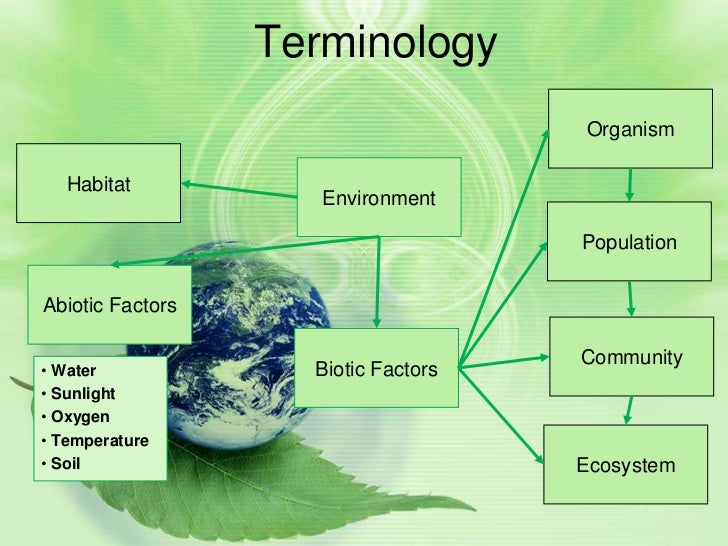5.1.1 Define species, habitat, population, community, ecosystem and ecology
Species is a group of organisms that can interbreed and produce fertile, viable offspring
Habitat is an environment in which a species normally lives or the location of a living organism
Population is a group of organism of the same species who live in the same area at the same time
Community is a group of populations living and interacting with each other in an area
Ecosystem is a community and its abiotic environment
Ecology is the study of relationships between living organisms and between organisms and their environment.
5.1.2 Distinguish between autotroph and heterotroph
Autotroph is an organism that synthesizes its organic molecules from simple inorganic substances such as carbon dioxide and nitrates. Autotroph are producers.
Heterotroph is an organism that obtains organic molecules from other organisms. Heterotroph are consumers.
5.1.3 Distinguish between consumers, detritivores and saprotrophs
Consumers is an organism that ingests other organic matter that is living or recently killed
Detritivore is an organism that ingest non-living organic matter
Saprotroph is an organism that lives on or in non-living organic matter, secreting digestive enzymes into and absorbing products of digestion
5.1.4 Describe what is meant by a food chain, giving three examples, each with at least three linkages (four organisms)
A food chain shows the linear feeding relationship between species in a community. An arrow is commonly used to represent the transfer of energy. Thus the arrow is pointing towards the consumer.
5.1.5 Describe what is meant by a food web
A food web is a diagram that shows multiple food chains together. It shows a more complete and complex feeding relationships within a community.
5.1.6 Define trophic level
An organisms trophic level refers to the position they are in on the food chain. Refer to the diagram below.
5.1.7 Deduce the trophic level of organisms in a food chain and a food web
An organism can have multiple trophic level. Find the trophic levels by counting how many past
5.1.8 Construct a food web containing up to 10 organisms, using appropriate information
5.1.9 State that light is the initial energy source for almost all communities
5.1.10 Explain the energy flow in a food chain
5.1.11 State that energy transformations are never 100% efficient
5.1.12 Explain reasons for the shape of pyramids of energy
5.1.13 Explain that energy enters and leaves ecosystems, but nutrients must be recycled
5.1.14 State that saprotrophic bacteria and fungi (decomposers) recycle nutrients







沒有留言:
張貼留言